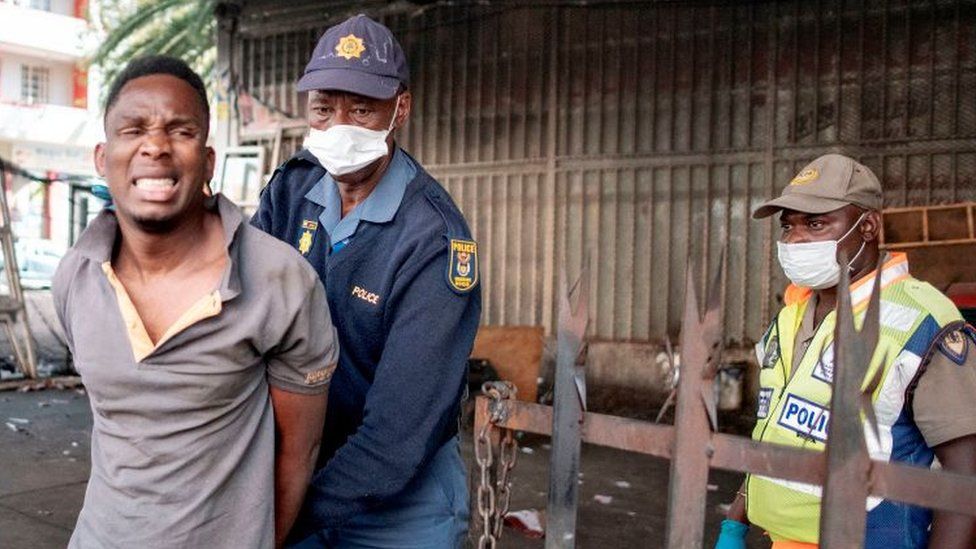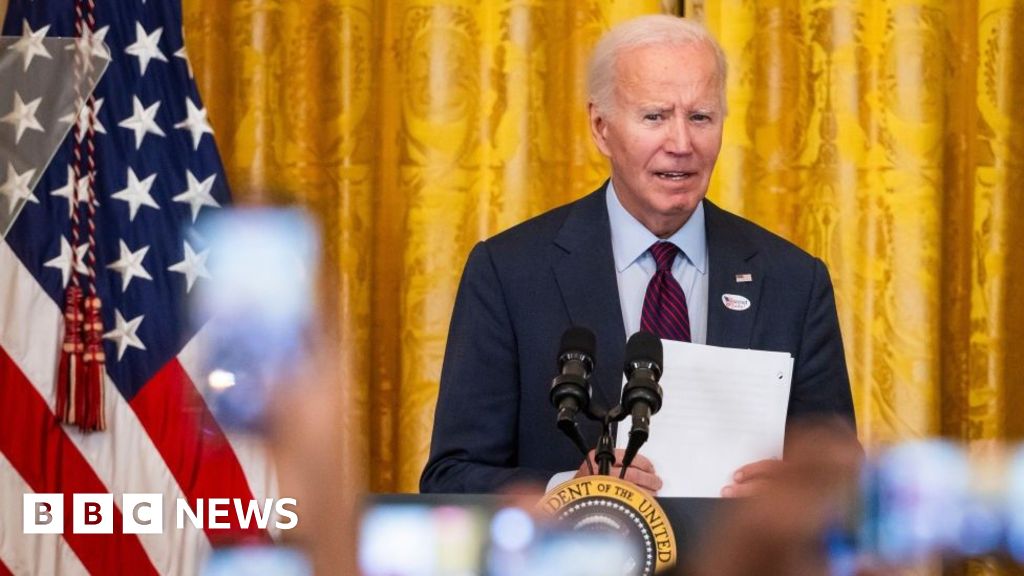ARTICLE AD BOX
 Image source, AFP
Image source, AFP
More than 100,000 people died of Covid in South Africa
By Nomsa Maseko
BBC News, Johannesburg
South Africa's parliament has passed a bill which would expunge criminal records for those convicted of breaching Covid-19 lockdown laws.
South Africa had some of the world's toughest restrictions, which saw more than 400,000 arrested for not wearing masks, consuming alcohol and breaking curfew, among other violations.
Those who admitted guilt and paid fines will now have their records cleared.
South Africans have broadly welcomed this bill.
It has to be approved by the National Council of Provinces, and then signed into law by President Cyril Ramaphosa but there is little doubt it will become law.
The Judicial Matters Amendment Bill gained broad political support when it was debated in parliament.
The opposition African Christian Democratic Party (ACDP), which supported the bill, highlighted how having a criminal record affected some people's chances of finding jobs.
"May we never again have such irrational regulations which were passed without parliamentary intervention or oversight," said ACDP MP Steven Swart.
In April 2021, police minister Bheki Cele said 411,309 people had been arrested for breaching lockdown regulations.
It's unclear how many of those who were arrested were ultimately convicted.
However, not all MPs voted for the bill to be passed into law.
The left-wing Economic Freedom Fighters (EFF) welcomed part of the bill but said it couldn't support the bill as a whole.
"The prosecutions and persecutions that came about as a result of the regulations flowing from the Disaster Management Act during the pandemic demonstrated the depth into which our judiciary system could be used to severely limit the rights of individuals," said EFF MP Veronica Mente.
"May the law never again be used in pursuit of sinister motives such as what happened during the Covid-19 pandemic."

 1 year ago
14
1 year ago
14








 English (US)
English (US)